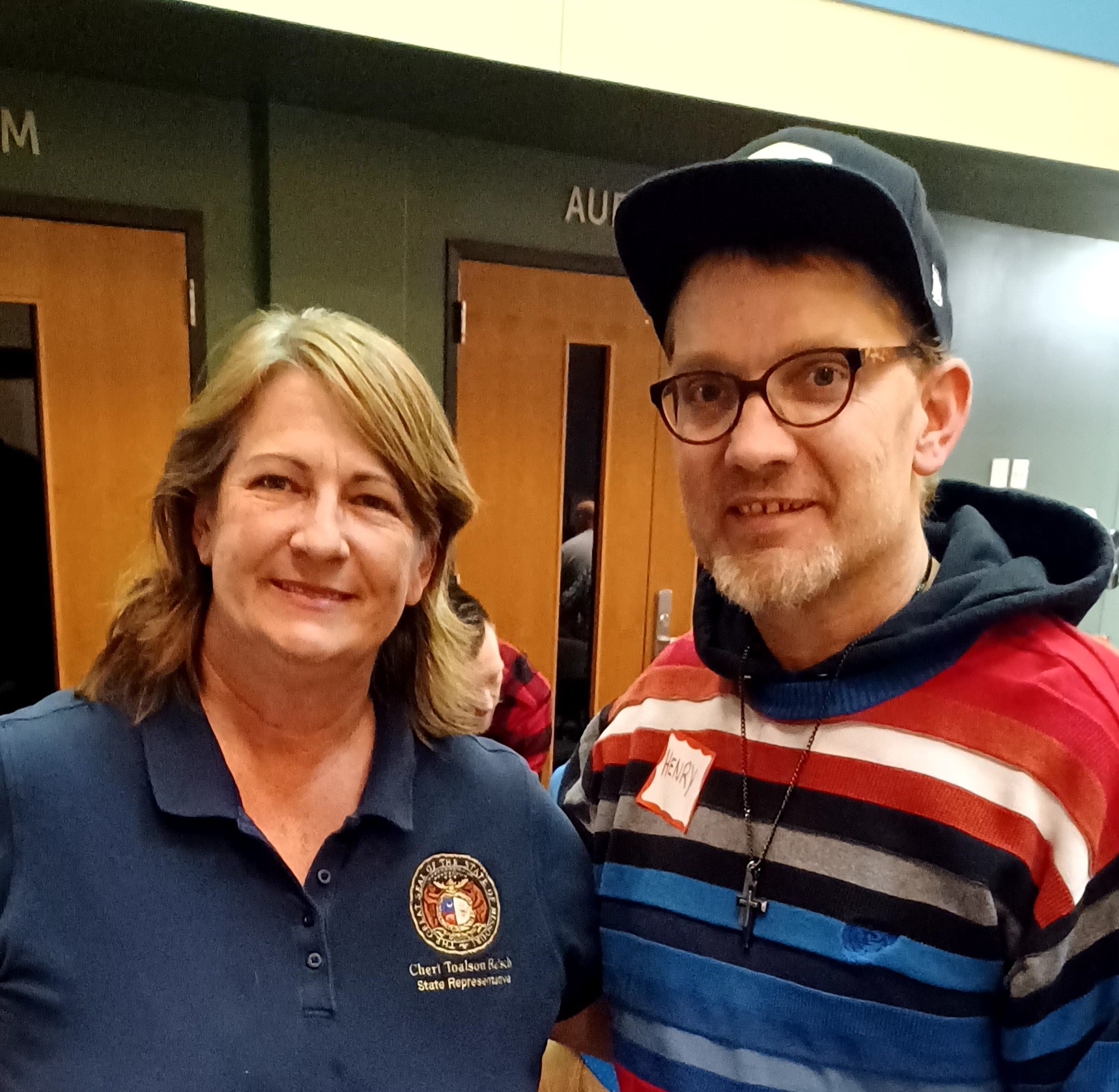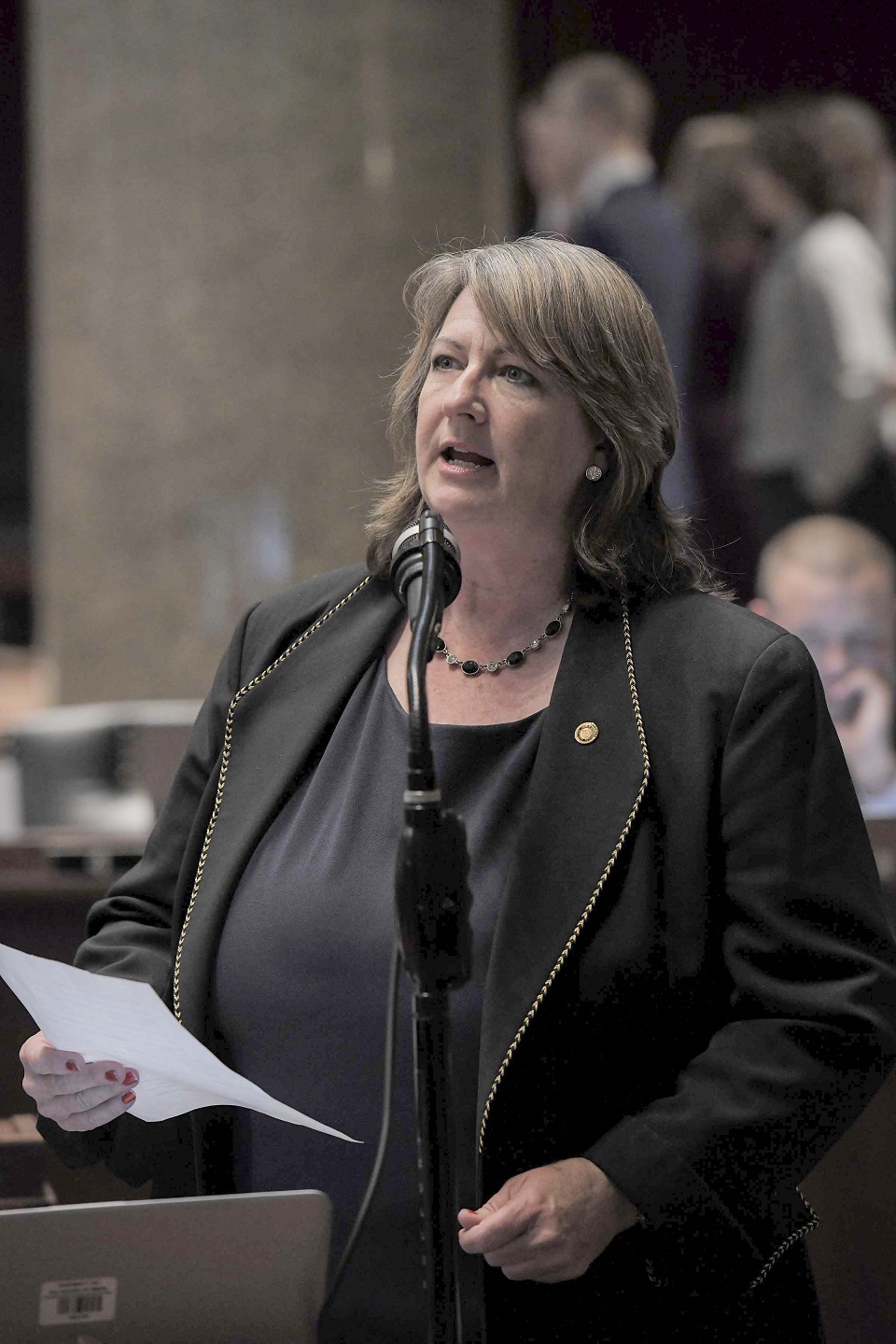Missouri House legislation has led to a man securing a chance at parole from prison in the next year, about 69 years earlier than he expected.
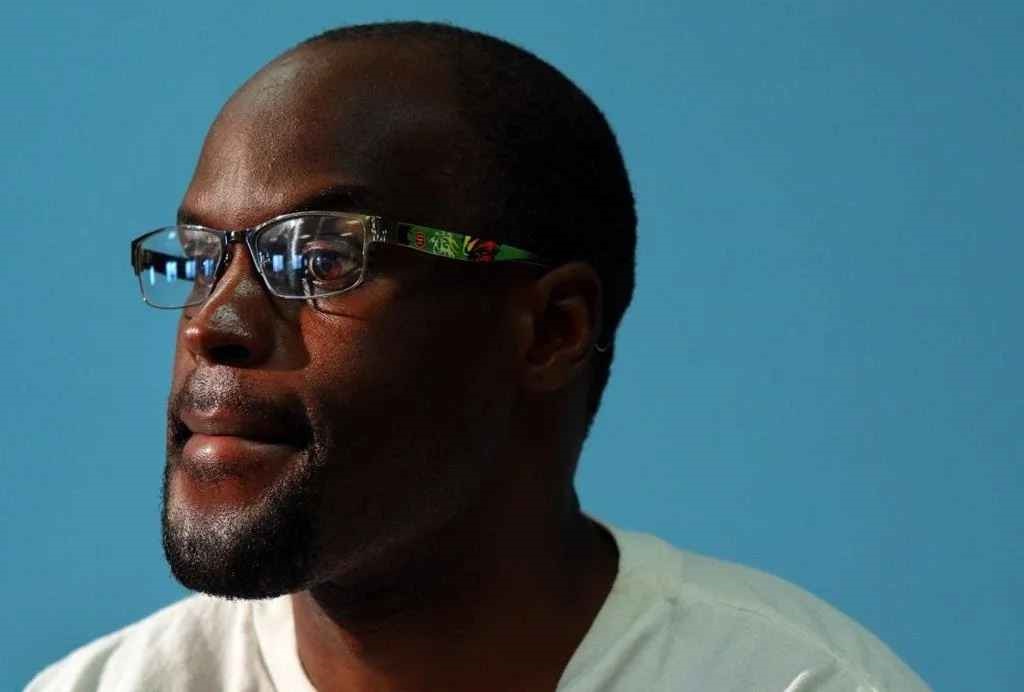
Bobby Bostic was sentenced to 241 years in prison after an armed robbery and carjacking in 1995. Bostic, who was 16 at the time, was tried as an adult and would not have been eligible for parole until 2091, when he would be 112.
A House amendment that became law this year as part of Senate Bill 26 makes eligible to apply for parole anyone sentenced to 15 years or more while a juvenile. The change gave Bostic a chance at a parole hearing after more than 20 years in prison. That hearing was completed recently and Bostic was granted parole. He will be released late next year.
Bostic’s plight became an issue for the legislature in large part through the efforts of O’Fallon Republican Nick Schroer, who was glad to hear about the parole board’s decision.
Schroer took up Bostic’s case in 2019, and then last year with his support, Kansas City representative Mark Sharp (D) sponsored the amendment to Senate Bill 26 that led to Bostic getting a parole hearing.
Soon after hearing about Bostic’s case, Schroer met with him at Jefferson City Correctional Center. He learned that while imprisoned Bostic has earned a GED, an associate’s degree, has completed courses from Adams State University and Missouri State University, and completed more than 30 rehabilitation classes and programs. He has helped other inmates pursue their education, and has become a published author.
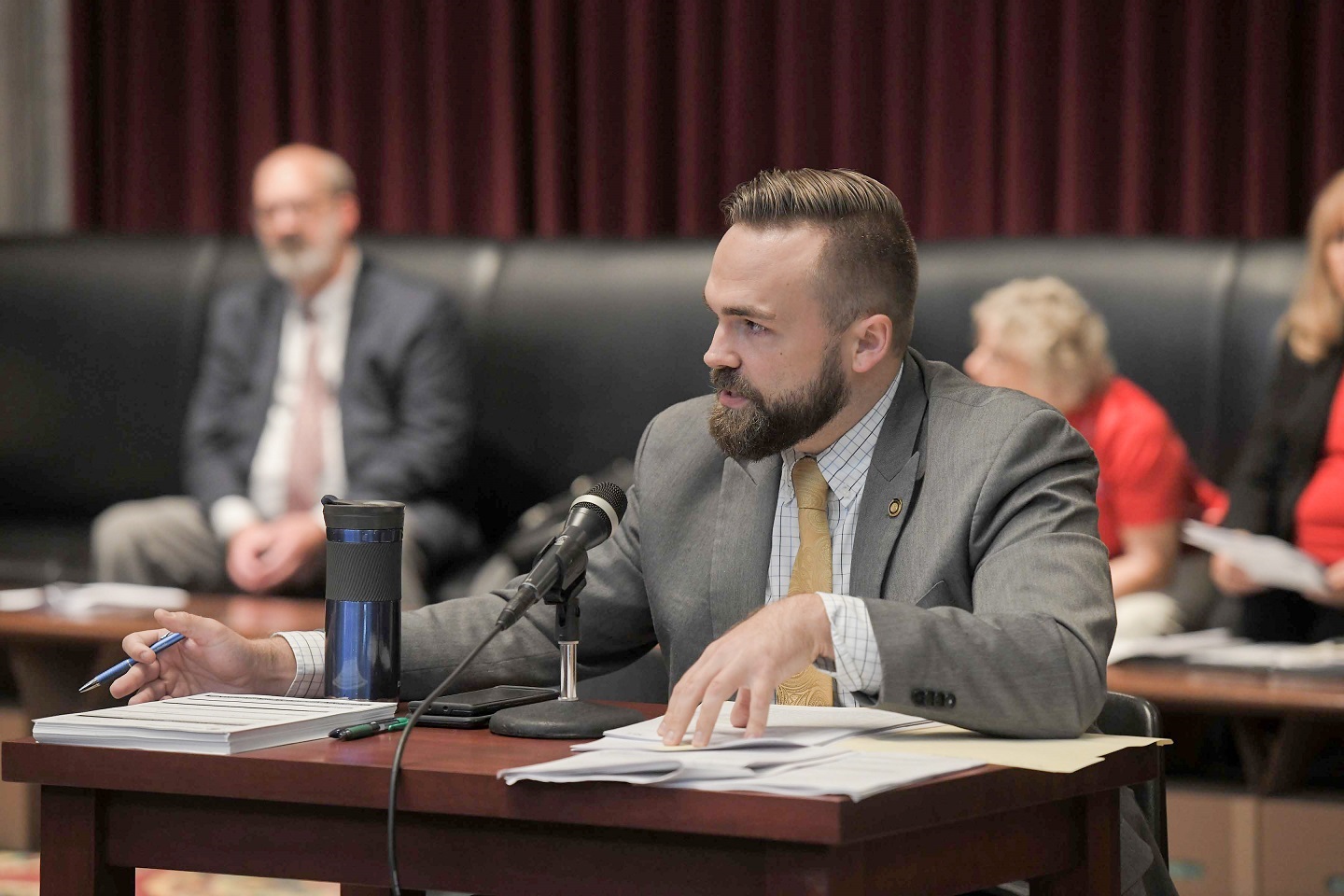
It was after that meeting that Schroer began pressing for Bostic to have a chance at parole.
That began with a letter to Governor Mike Parson (R) asking him to take executive action on Bostic’s case. More than 100 legislators in both parties and both chambers signed that letter.
Bostic was sentenced to 241 years in prison on a series of charges stemming from a 1995 incident in which he, then 16, and an 18 year-old robbed a group of people delivering Christmas presents to the needy. One victim was shot and sustained a minor wound. The pair then carjacked and robbed a woman.
None of the victims of Bostic’s crimes opposed him being given a chance at parole. Some testified that he had little involvement in the crimes and that the 18 year-old was the instigator. While Bostic received more than two centuries in prison, the accomplice pleaded guilty in exchange for a 30-year sentence.
Retired Circuit Judge Evelyn Baker, who handed down Bostic’s sentence, has become one of the most ardent supporters of his parole and represented him at the hearing.
Bostic is not expected to be released until late next year. Sharp said he will spend much of the time until then preparing to return to freedom after 20 years behind bars.
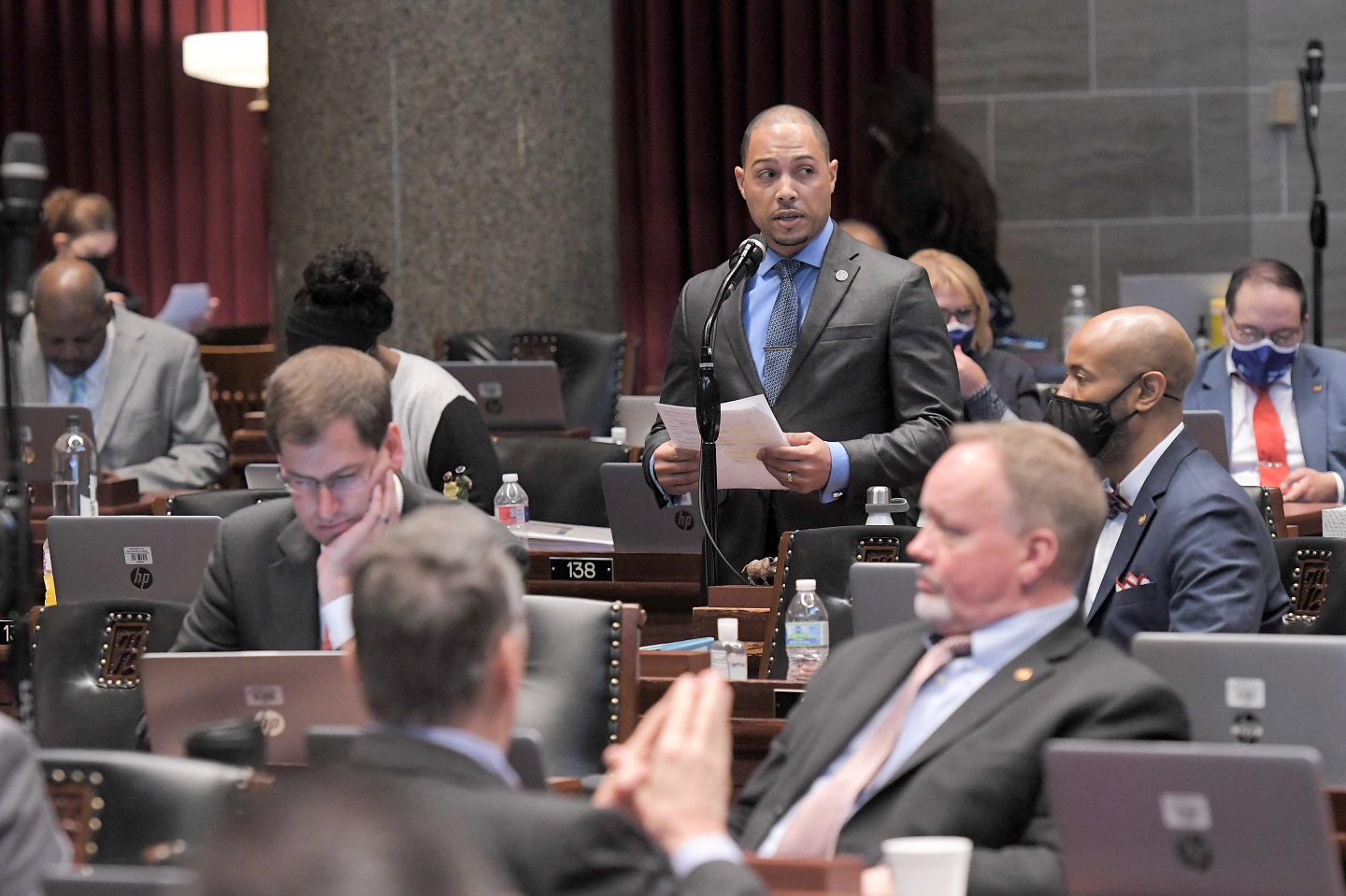
Roughly 100 others in Missouri’s prison system could have a chance at parole under the language that helped Bostic. Schroer said for those and others getting out of prison, there are people throughout the state who want to help them start over.
Other portions of Senate Bill 26 have led to a court challenge that could see everything in it struck down. Sharp and Schroer say they aren’t sure what it would mean for Bostic’s case should that happen, but say they will be watching developments and remain committed to helping Bostic get a chance at freedom.
